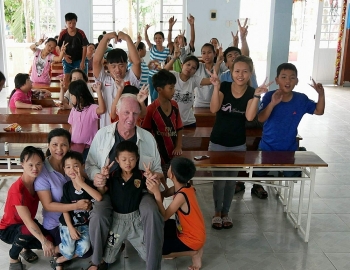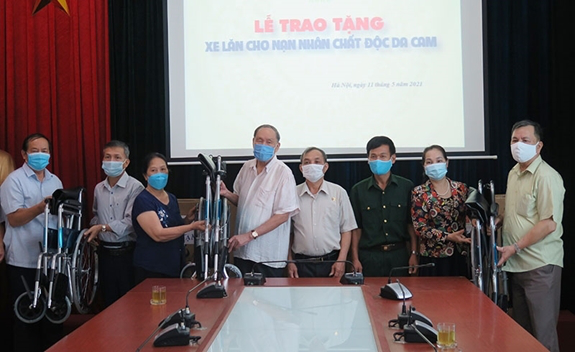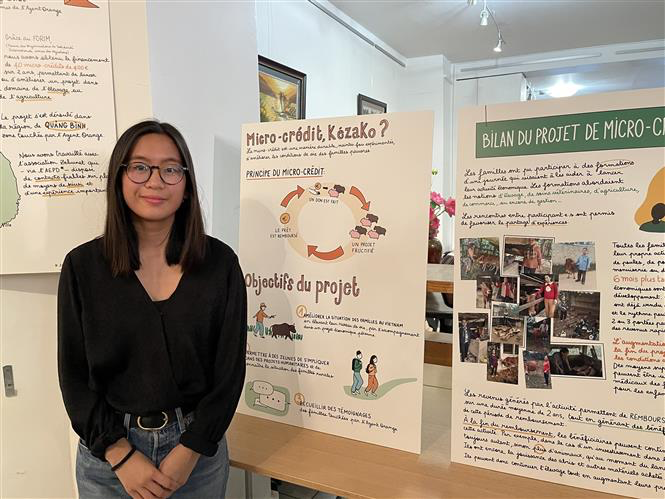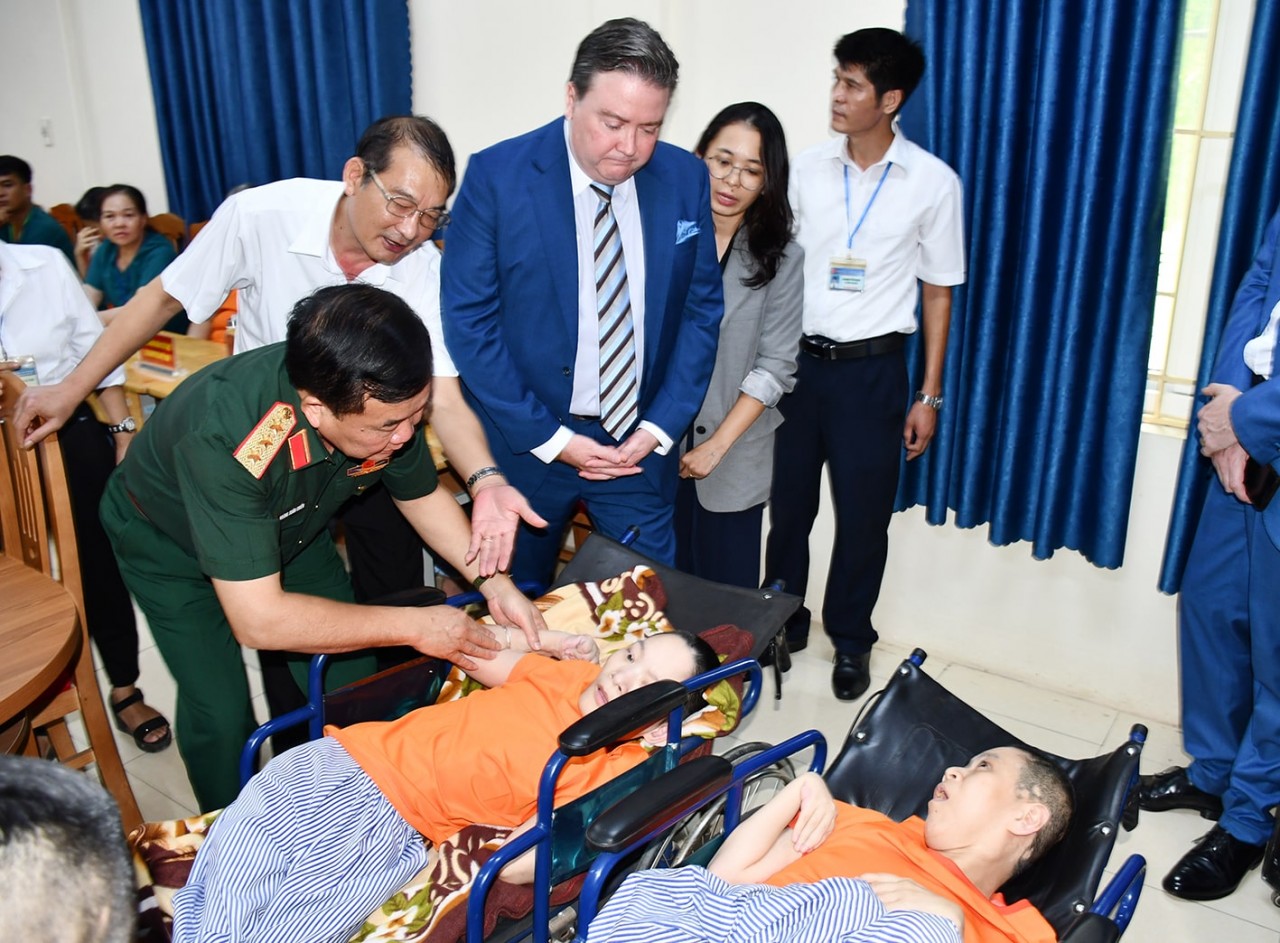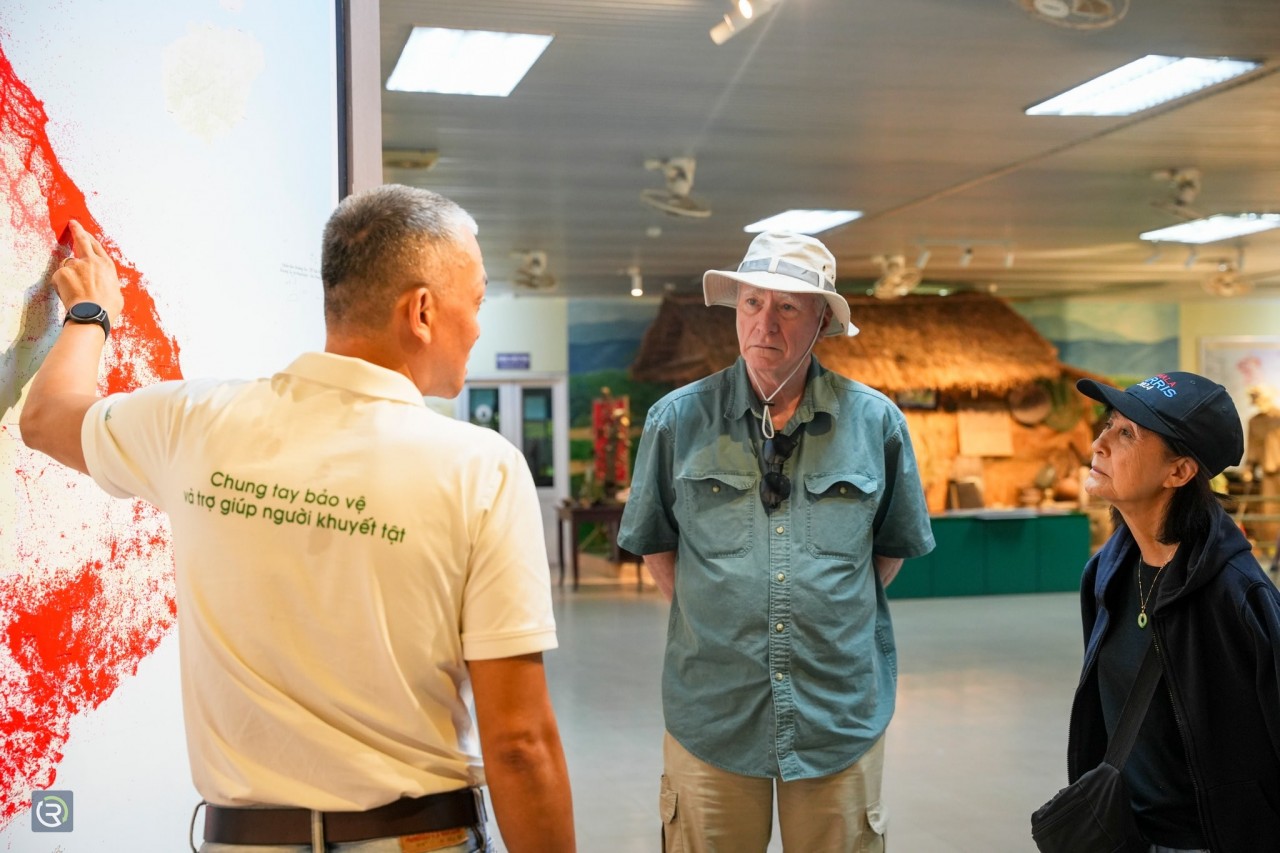More Hospitals Needed for Agent Orange Victims
| For Agent Orange Victims, the "Wounds of War" Still Ache | |
| Creating Better Conditions to Support Victims of Agent Orange | |
| First Graphic Exhibition on Vietnam's Agent Orange in France |
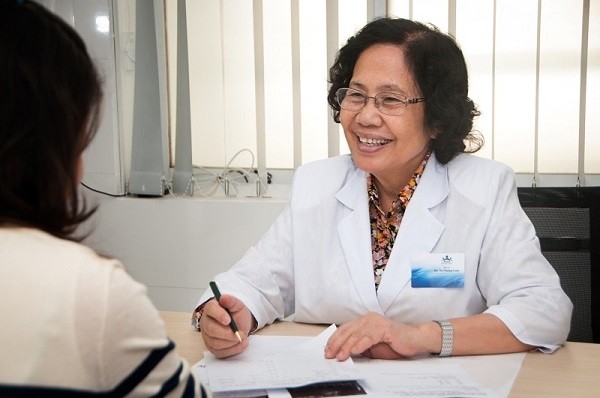 |
| Dr. Nguyen Thi Ngoc Phuong recommends more hospitals to be built for agent orange victims. Photo: Thoi Dai |
“We must take special care to our future. Expectant mothers exposing to agent orange might take a heavy toll on themselves and the fetus. Dioxin can accumulate in the liver or mammary glands then travel to breast milk, thus get into the baby’s body in the end,” Phuong said.
The doctor added that at the moment, there’s no need to discuss whether dioxin caused cancer or any other diseases. “Instead, we should address these consequences by detecting birth defects of the uterus at the early stage of pregnancy, counseling families about the fetus’ health condition to help them make the right decision. Early diagnose of cancers is also important,” she said. “We should also equip new medical equipment and technology, establish good hospitals to take care of agent orange victims.”
Phuong also suggested to speed up decontamination at dioxin-affected areas, imposing more stringent laws to curb the exposure. Those chemical companies involving in the spread of dioxin in the past must be held accountable and help agent orange victims have a better life.
The stronger scientific collaboration efforts between Vietnamese and US scientists will also promote information exchanging and practical solutions to address the consequences of agent orange to Vietnamese, US veterans, and their families.
For almost 10 years since 10 Aug. 1961, the US military had been spraying toxic chemicals, mainly Agent Orange/dioxin across many localities in Vietnam, leaving disastrous consequences for people and the environment. 4.8 million Vietnamese have been exposed; about 3 million people are victims of incurable diseases, passing genetic diseases to their offspring. This is considered the largest and most catastrophic chemical war in human history, and its consequences continue to this day.]
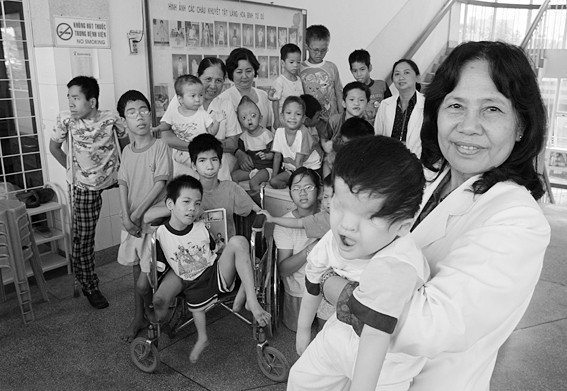 |
| Dr Phuong and agent orange victims. Photo: Thoi Dai |
During American war, around 80 million liters of chemicals, 60% of which is Agent Orange, were sprayed directly to over 20.585 villages housing millions of people, including Americans veterans. Dioxin contamination, therefore, is particularly more severe than other poisons in Vietnam.
At the first conference on the long-term consequences of defoliants and herbicides used in American war held in HCMC in January 1983, international experts had analyzed that the average dioxin level in agent orange used in Vietnam was 150 times higher than the standards of the Soviet Union and 50 times than the EU.
In 1973-74, Baughman and Meselson found elevated levels of dioxin in breast milk samples of mothers living in contaminated areas, including Tan Uyen village, Binh Duong province, southern Vietnam.
The war has ended for over four decades, but the wounds of war are still ache. Millions of people, including children, are suffering both physical and mental pains. These pains are unforgettable for Vietnamese people and those supporting peace around the world.
| Even during the war, international public opinion voiced opposition, demanding an immediate end to the use of Agent Orange/dioxin in Vietnam. In May 1964, the Washington Post (USA) published an article by Jim. G. Lucas asserted that America's Ranch Hand campaign destroyed crops in the Mekong Delta. On December 28, 1970, The Times newspaper (UK) assessed that "from 1962 to now, more than 5 million acres (about 2 million hectares) equivalent to one-eighth of the area of South Vietnam have been sprayed with insecticides which were 15 times higher the permitted doses. Also in 1970, the World Federation of Scientific Workers held the "International Conference of Scientists on Chemical Warfare in Vietnam" in Orsay, France. The conference issued a Resolution requiring the US to immediately stop using agent orange, calling on all scientific research organizations in the world to support the Vietnamese people to do more in-depth research on the harmful effects of agent orange on human health and the environment. |
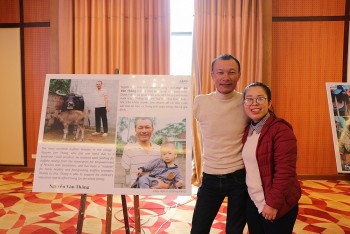 | Agent Orange Victim Dedicated to Helping the Disabled Born a second-generation victim of Agent Orange, Tu Thi Nhat Linh has been facing health setbacks since she was a young child. Never giving up, ... |
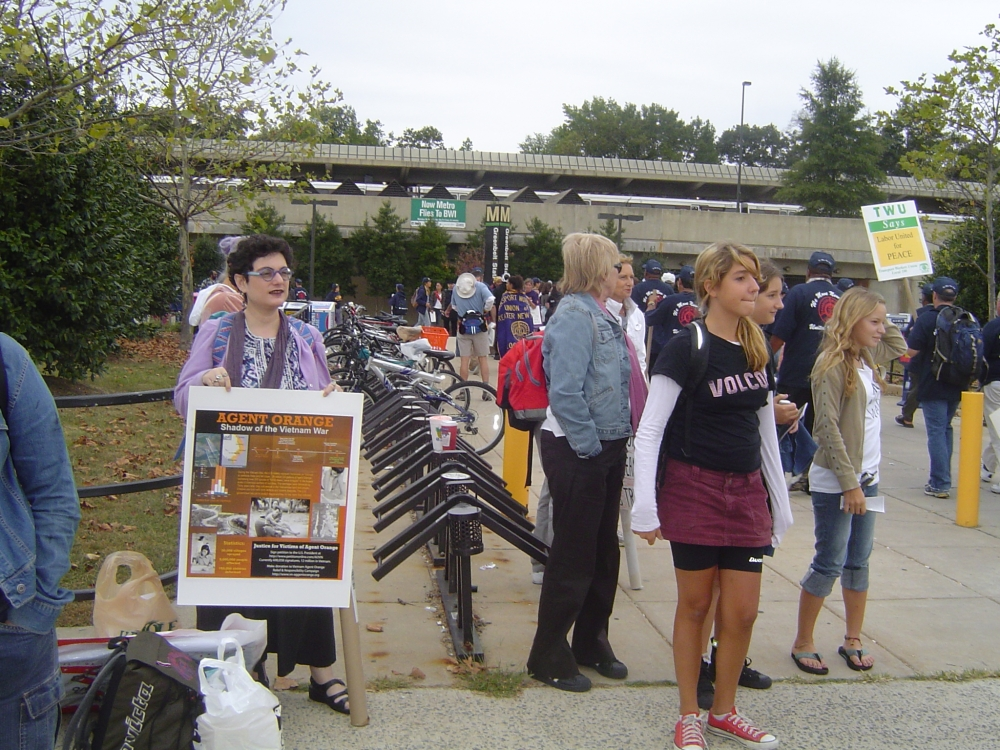 | Merle Ratner: We Are Always With You - Victims of Agent Orange Merle Evelyn Ratner is an American activist born in New York city. She has been active in the anti-Vietnam War since she was 13 years ... |
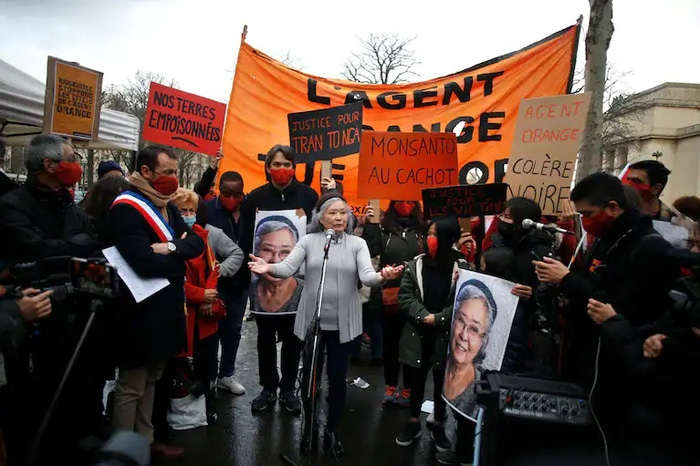 | Tran To Nga: "As Long as I Live, I will Continue to Demand Justice for Agent Orange Victims" Tran To Nga, a nearly 80-year-old woman who has been fighting for Agent Orange victims for more than 10 years, shared with Vietnam Times on ... |
Recommended
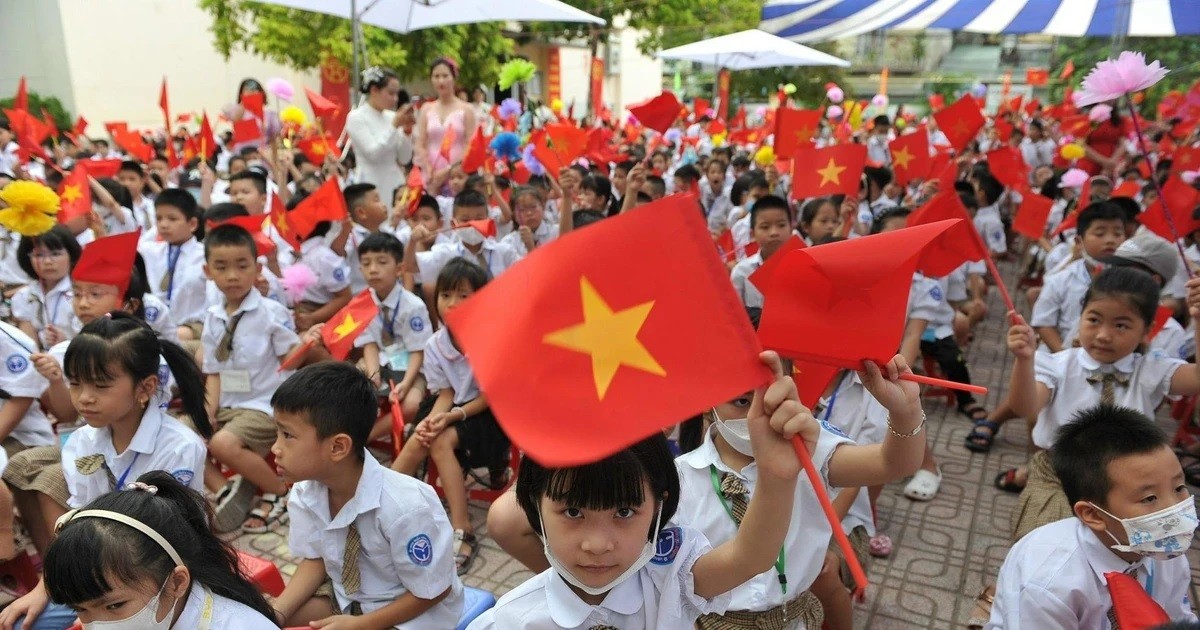 Viet's Home
Viet's Home
Vietnam's Human Development Index Remains High
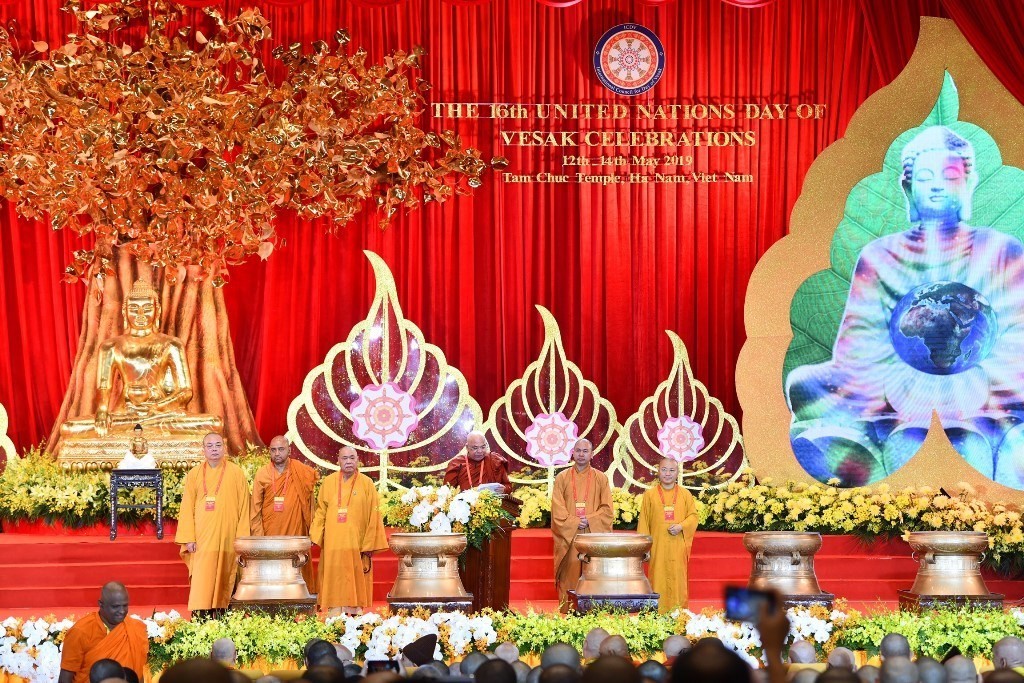 Viet's Home
Viet's Home
Vietnam’s Mark on UN Day of Vesak Celebrations
 Viet's Home
Viet's Home
Art Program Spreads Message of Peace Worldwide
 Expats in Vietnam
Expats in Vietnam
Look Forward to New Developments in Vietnam - US Relations
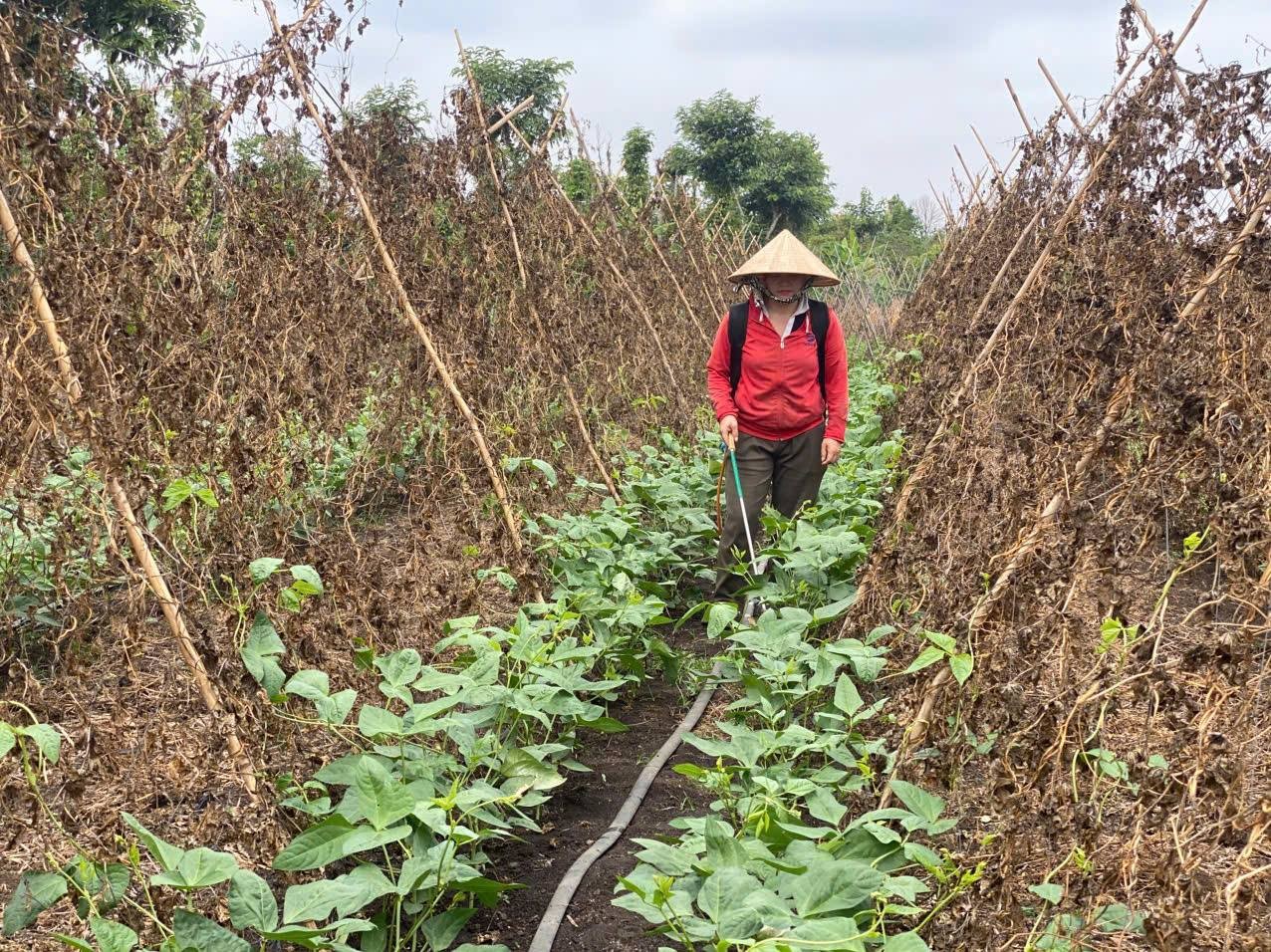 Viet's Home
Viet's Home
She Feeds the World: 8,000 Individuals Adopt More Sustainable Agricultural Practices
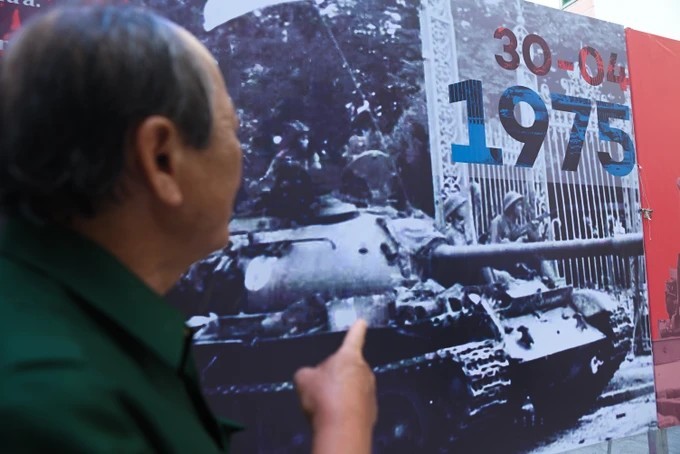 Viet's Home
Viet's Home
Over 200 Valuable Documents Displayed at 'Mountains and Rivers Connected One Strip' Exhibition
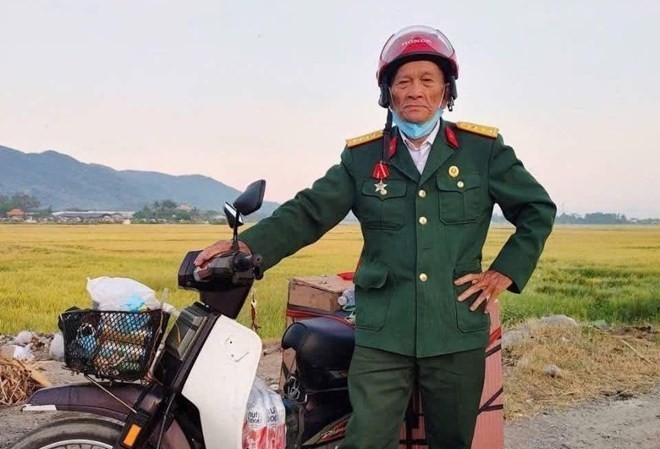 Viet's Home
Viet's Home
Latin American News Agency Prensa Latina Shares Story of Vietnamese Veteran’s 1,200km Journey Back to Former Battlefield
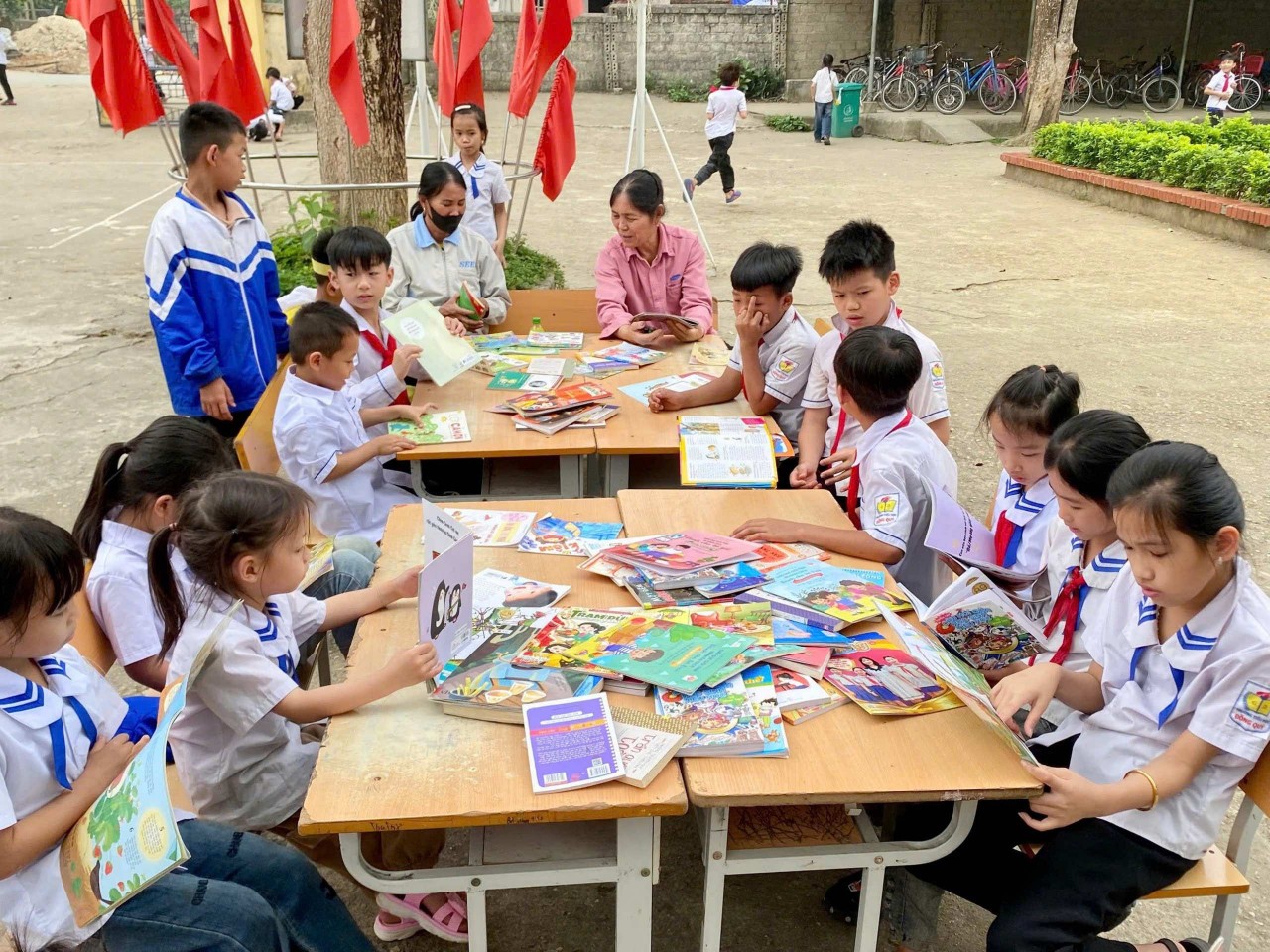 Viet's Home
Viet's Home

